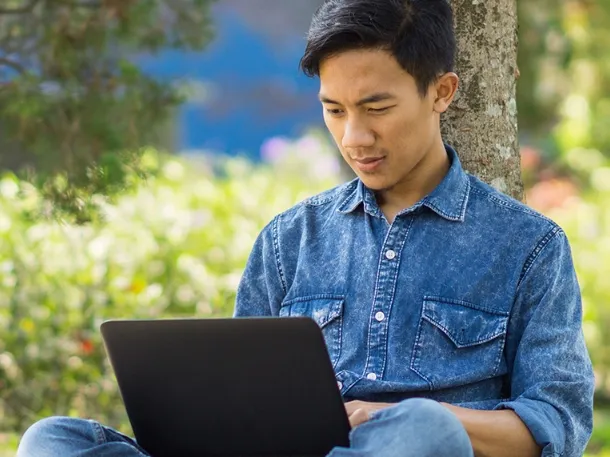- Home
- >
- APU Articles
- >
- News Article
Stay Healthy During College: 5 Mental, Physical, and Spiritual Tips
October 20, 2020 | Written By Tobin Perry

Of course, that means wearing a face mask, washing your hands, and observing appropriate physical distancing. But a complete picture of health means more than that! As one study in Psychiatry Research found, the pandemic has led to increased mental, emotional, and spiritual needs. You may be experiencing this yourself.
Thankfully, students can adopt several habits to stay healthy during college, no matter where they are learning. Here are five tips that can help you maintain mental, physical, and spiritual health every day and during times of heightened stress.
1. Get Moving Regularly
With remote learning and physical distancing, you’re likely spending more time at home. Do your best to continue to be active or exercise regularly (four to five days a week is recommended). Working out boosts your immune system and reduces the effects of stress on the body. Challenging yourself to simply log a certain number of steps a day can increase your movement and positively influence your overall well-being. Aim to top 10,000 steps if you can!
2. Make a Habit of Healthy Eating
Usually one of the first areas of our lives that gets sidetracked when our schedules get busy or we feel distracted is our diet. This makes total sense, but it’s an important thing to keep an eye on, even during stressful times.
More time at home can mean easier access to snacks (some healthy, some not), or you may be missing the healthy options that are ready-made for you on campus. Try limiting the amount of unhealthy foods you have on-hand at any one time. Also, consider preparing healthy eating options at the beginning of the week so you have them ready for the hustle and bustle of the following days.
3. Stay Connected
Isolation can be difficult for everyone—now is the time when you need strong relationships. Try to be disciplined in routinely reaching out to friends and family members. This can help you feel supported and will remind your loved ones that you’re thinking of them.
Send a few texts. Make a couple phone calls. Gather in small groups and practice physical distancing when possible. Use video-conferencing software to better simulate a face-to-face meeting. Your friends are probably having similar feelings and experiences; you’re not alone in this!
4. Turn to God and Pray
Let your faith be a centering element right now. Consistent pursuit of spiritual disciplines is an important way Christians can find stability in times of turmoil. Try to pick a specific time and place each day where you can be alone with God. This can help you feel spiritually centered and give you the motivation to keep doing your best, no matter the situation.
5. Look for Opportunities to Serve
So many people have so many needs right now. The pandemic has taken its toll on nearly every area of society, and much of the population is concerned with what’s to come. That’s why volunteering to serve others can be even more powerful during this time.
Even with physical distancing, you can find ways to help through your church or other community organizations. Service connect you to other people and gets your mind off your temporary troubles. Plus, it enables you to do an act of service that likely means a great deal to others.
Destination APU | Emotional Wellness with Lori Lacy, PsyD
Staying Healthy While Studying at APU
Azusa Pacific University takes the holistic health of its students seriously.
Katie Shubin, MMS, PA-C, a physician assistant at APU’s Student Health Center, noted that the university is committed to providing students with “wellness and health resources to navigate COVID-19 and thrive in distance education.” Additionally, she encourages all students to continue to follow COVID-19 precautions, as anything they can do to stay healthy during college can have a big impact. They won’t just be protecting themselves—they’ll also be protecting others.
“You can be part of the solution to help stop the spread of this virus,” Shubin said. “The number of COVID-19 cases in young people (20-40) continues to be high, so students need to take the precautions seriously and help protect others.”
In response, APU has rolled out a suite of new resources. Telemedicine and teletherapy appointments are available to undergraduate students through the Student Health Center and University Counseling Center, while graduate and professional students can also access virtual medical, mental health, and health coaching at APU Telehealth. These student resources ensure all APU community members are able to get the support they need.
Want more information about how Azusa Pacific University is working alongside students to navigate this unique period? Check out Student Affairs.